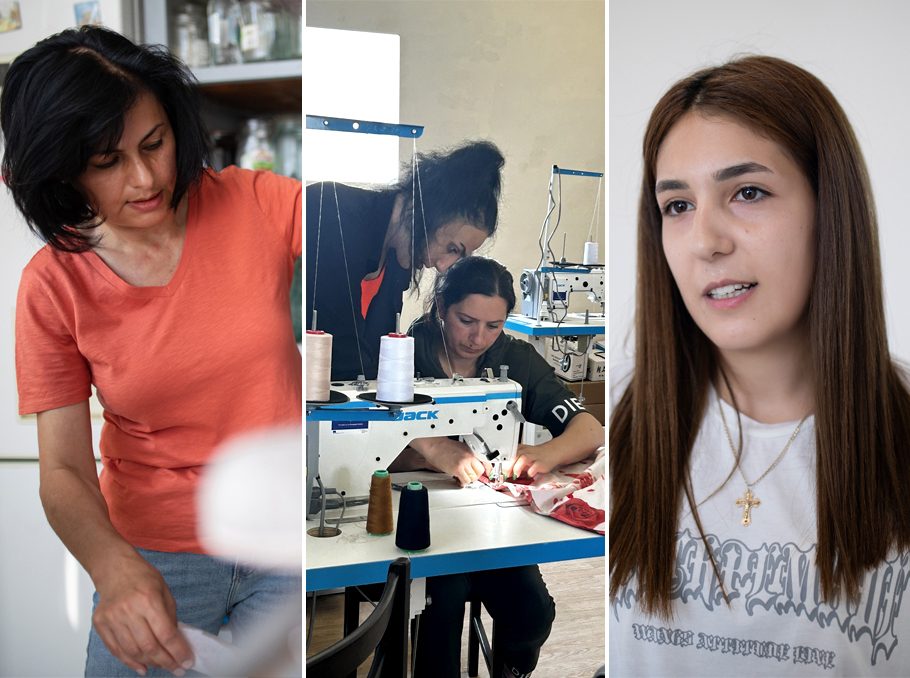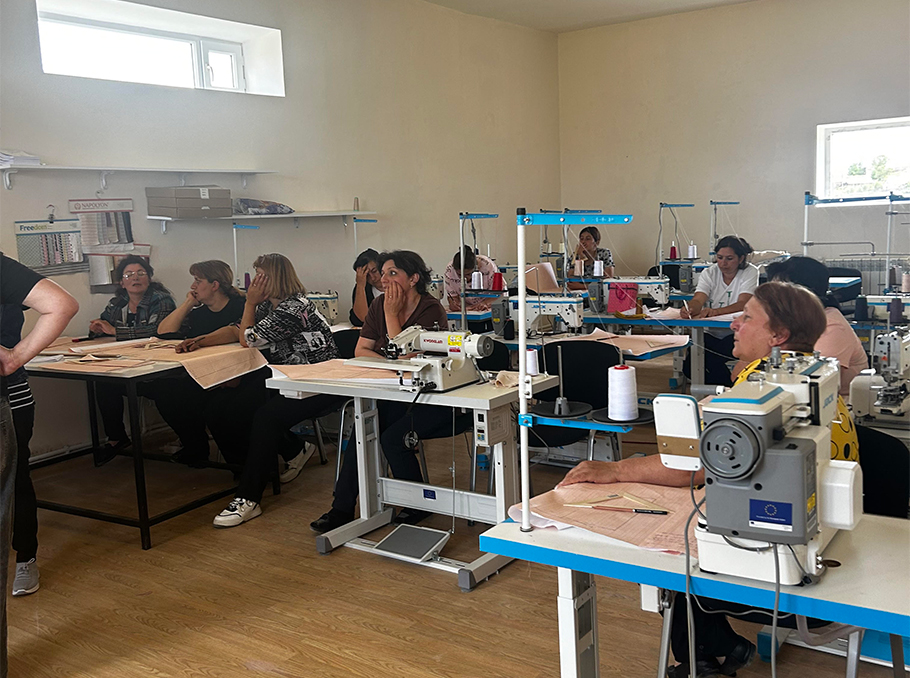An opportunity to develop hobbies and to transform them into careers: this is the way LEAD4Shirak has chosen to support the residents of small communities through its local action groups (LAGs).
In an interview with Mediamax, people who brought their ideas to life shared how they turned their favorite hobby into businesses, united women within their communities, and discovered personal empowerment by starting a new business.
Turning a hobby into a business
Armine Khasikyan is a resident of Amasya. She is an economist by profession. In addition to numbers, her favorite occupation, fulling, has become a part of her daily life. Now she is making slippers.
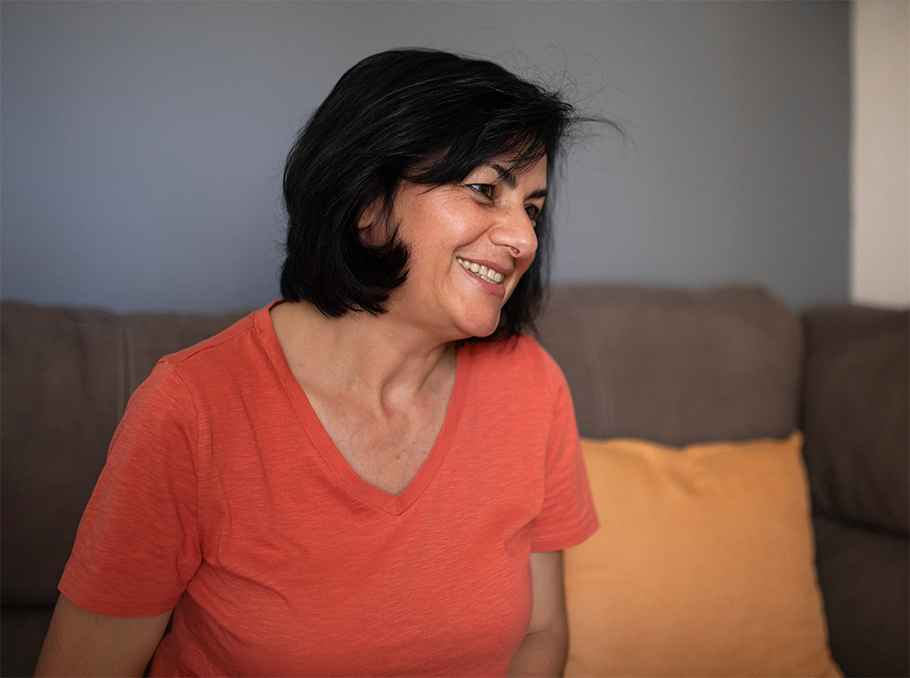
“When people do what they love, they become more positive and relaxed, which impacts every aspect of their life. Plus, when you make something with your own hands and are pleased with the result, you feel satisfied,” she said.
At first, fulling was a hobby for her, then she participated in several festivals and noticed people’s interest. When she learned about the support offered by the Northern Way LAG, operating in her community, the idea of turning her hobby into a business arose.
“With the support of the Northern Way LAG, I have purchased equipment that will help in processing the wool. Working by hand is difficult, because local wool is tough to handle, but the good thing is that it is perfect for slippers, because it wears out slowly,” explained Armine Khasikyan.
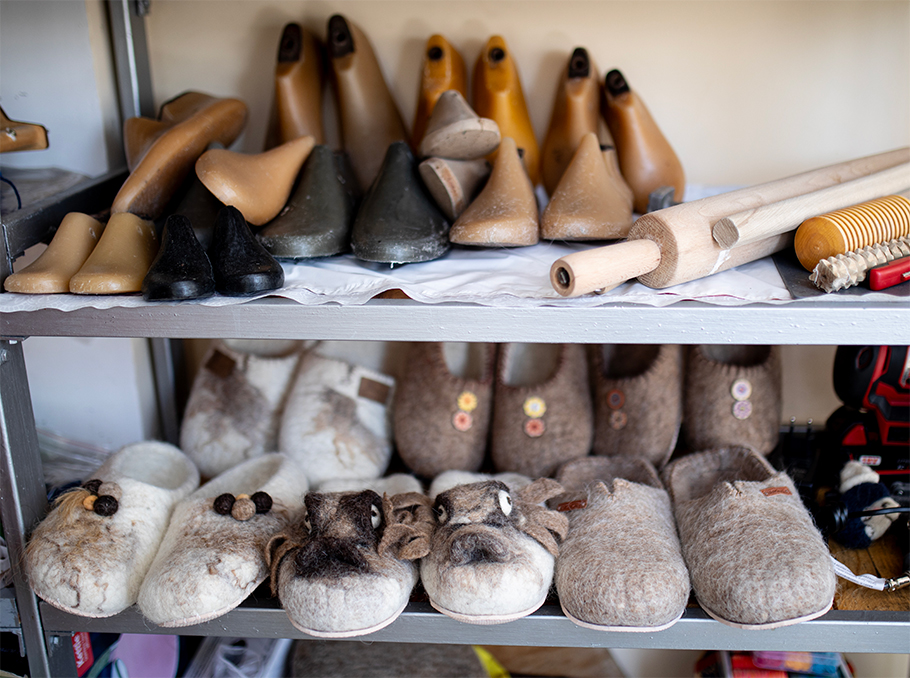
Armine purchased sewing machines for leather and thick fabrics. The vertical knee machine will also help to add leather details and turn slippers into shoes.
Currently, her workspace is on the balcony of her house, as her workshop is being renovated. “It is a bit uncomfortable, but it is possible to work,” Armine said. She aims to expand her business, now she is working in that direction.
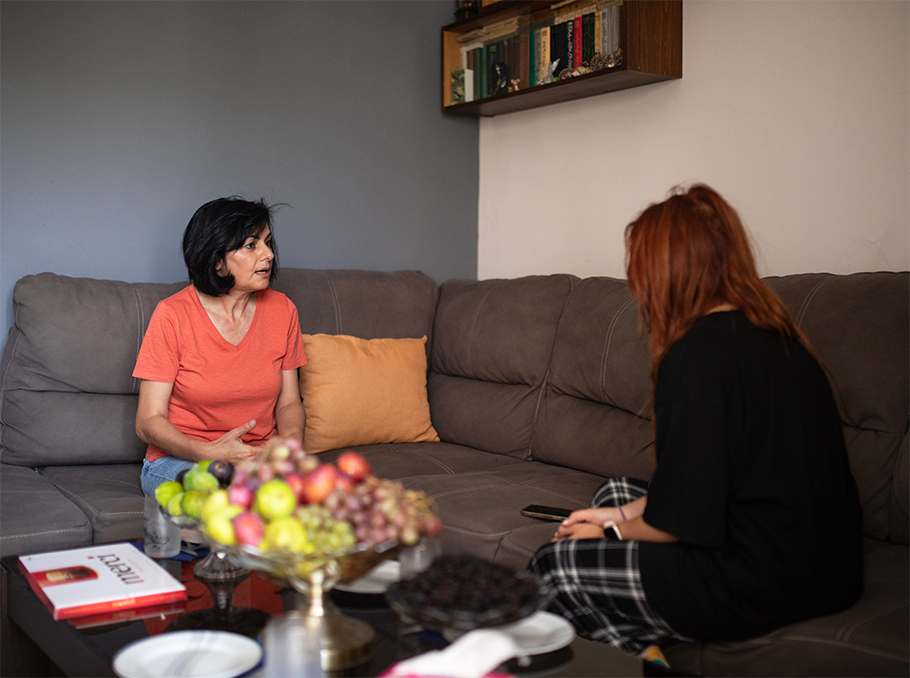
“At first, I was interested in silk weaving, but after watching fulling videos on YouTube I was drawn to it and decided to dive deeper. I make woolen slippers, which have several advantages - they do not squeeze, they get the shape of your foot and provide a pleasant massage. They are worn barefoot, so the usefulness is higher. But I am not limited to slippers, I also make toys, bags, and plan to expand into outdoor shoes as well in the future. When I participated in the business courses organized by the LAG, I started thinking that this work was not profitable and considered leaving the program. But I talked to the mentor who got angry, and said, “Instead of thinking about how to make a profit, you want to give up?” I decided to continue. I received a lot of support in the form of advice, and they are still helping us,” she said.
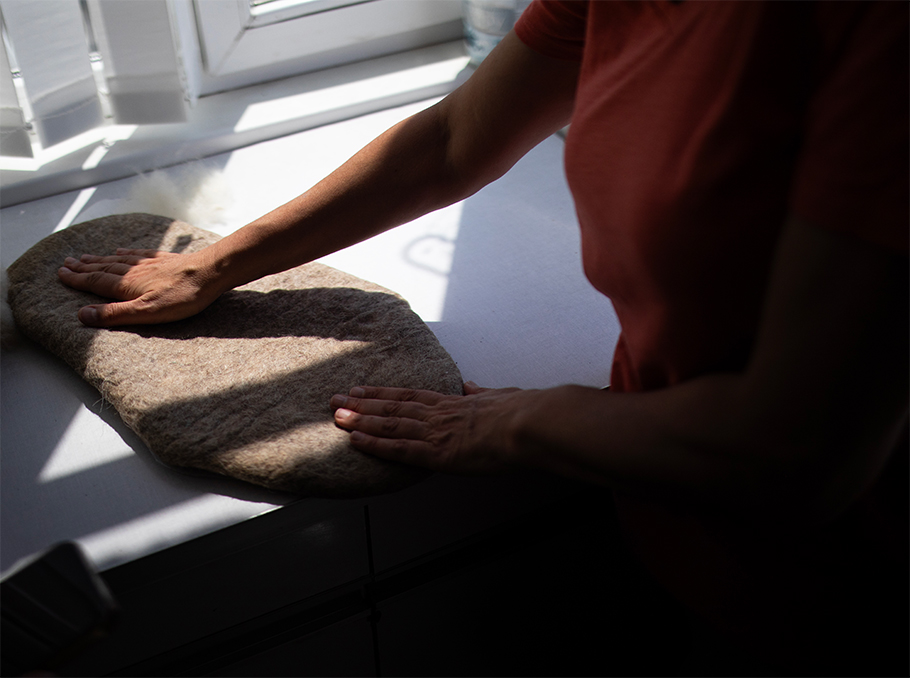
Some of the tools acquired through the program are in the future workshop: a table, racks, washing and sewing machines and a steam iron.
“I’m really happy now - with these tools, I can create anything that comes to my mind. The other women who participated in the fulling courses with me are also waiting for the opening of the workshop,” said Armine Khasikyan.
“Brides of Lanjik” that keep women in the village
Two years ago, the members of Aragats Valley local action group took a special interest in Lanjik. After getting to know the residents and understanding the village’s problems, a sewing workshop called “Brides of Lanjik” was established. Susanna Poghosyan presented the area. Although her children live in the city, she chose to stay in the village to “leave behind meaningful work.” She is one of the first residents from this community to apply for the LAG program. She says that the goal was to create jobs for the women of the village.
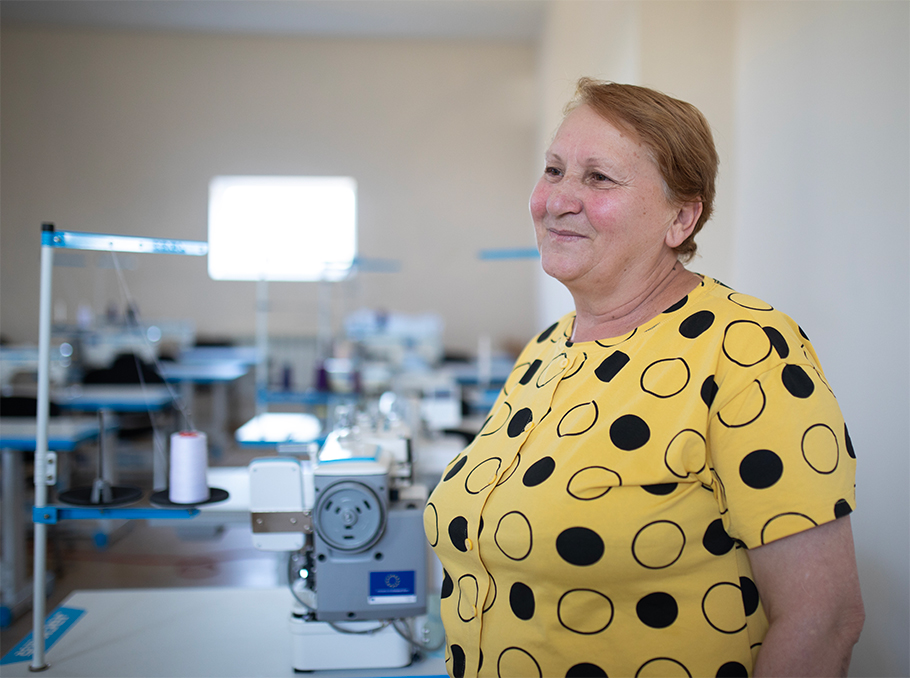
“Brides of Lanjik” workshop is located in the village’s former kindergarten. The space was provided by the municipality. The women worked together to renovate it - they cleaned the area, bought paint and painted the walls, sewed curtains and tablecloths, brought houseplants to beautify their surroundings,” Susanna said.
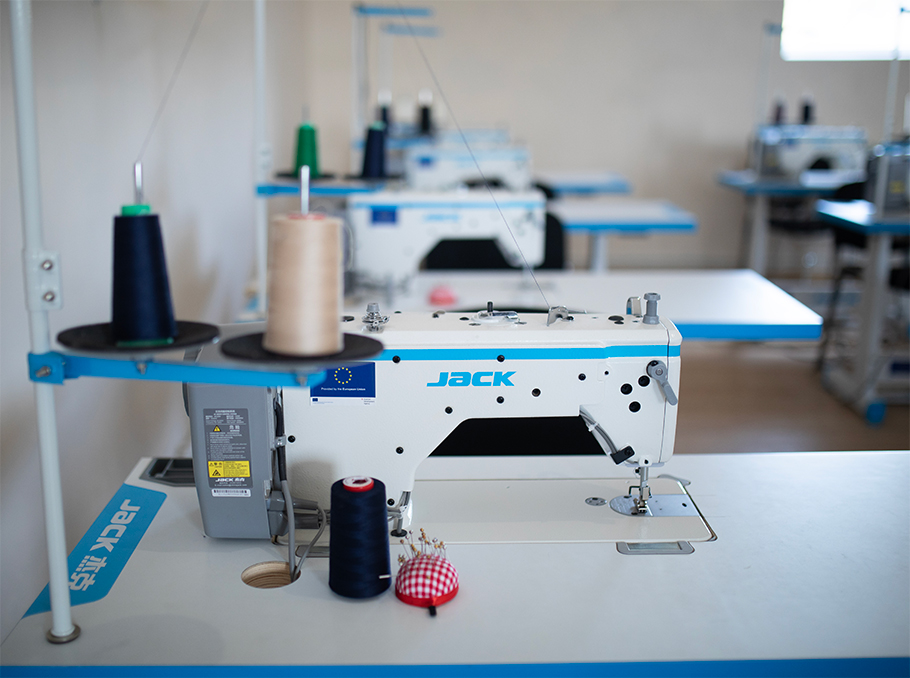
In recent years, many people have left the village due to lack of jobs and limited access to transport. Mrs. Susanna said that, until now, the women of Lanjik tried to find work in neighboring villages or towns.
“Every day they had to travel to earn money for daily bread. Even women with higher education would travel from Shirak to Armavir region to work in the fields, leaving at 4 in the morning and returning at 10 in the evening. They were away from home all day. We hope the sewing workshop’s future projects will succeed and provide more job opportunities for local women,” she said.
Violeta Hovhannisyan, is a member of the LAG Council, she and her children had planned to leave the village long ago. However, thanks to the “Brides of Lanjik” project, she is still there. She says: “Those who were considering leaving the village, hoped for the project’s success and stayed.”
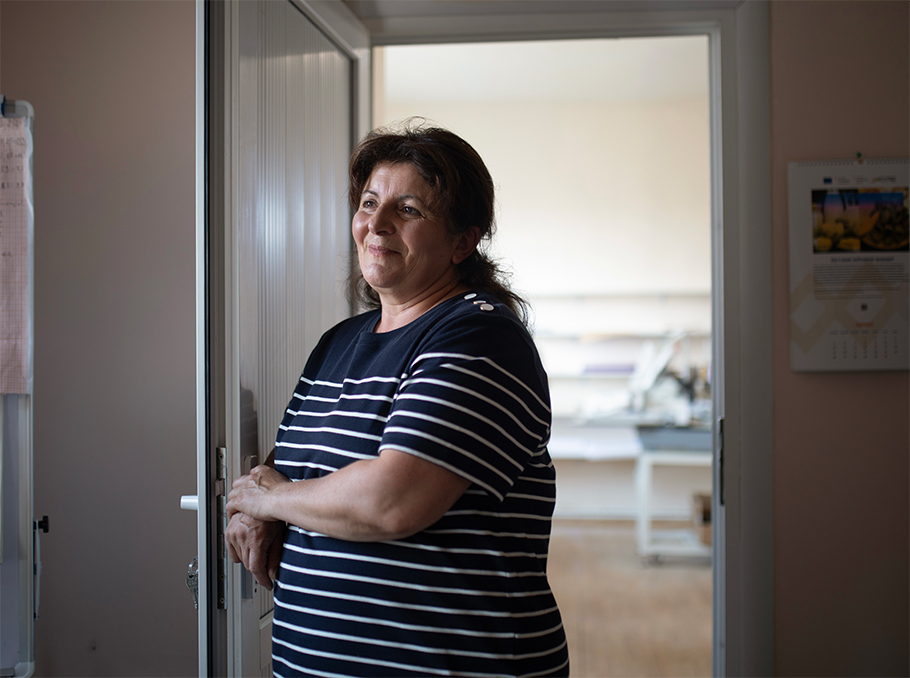
“We are still learning how to design and sew, we are pleased with the machines. Our first work was making tablecloths for the pavilions of the “7 stones” yard games festival. After that, we sewed flags. When a performance was planned at the kindergarten, the parents asked us to make costumes for the children. We were happy to take on the task, and with the help of our teacher, we completed it successfully. Both the parents and we were very satisfied with the result,” she said.
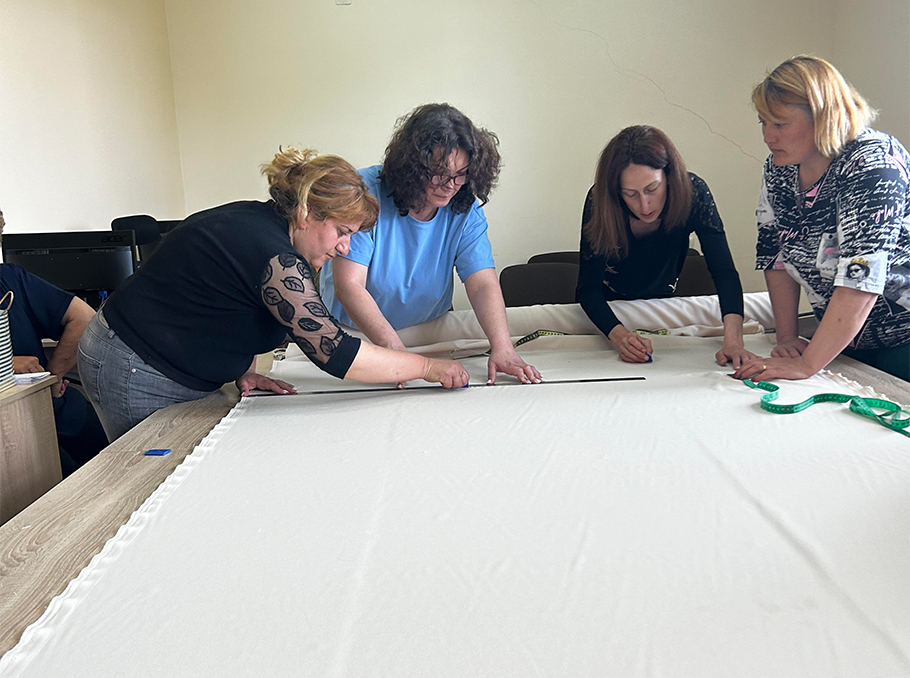
Fifteen women are currently participating in sewing and pattern training in Lanjik. All of them were already skilled, but the course helped them refine their abilities and become more proficient. They go to the workshop almost every day to learn and apply new skills.
Akhurik’s empowering lavash
A bakery has been operating in Akhurik community for a year now, founded by Valya Khachatryan. Her struggle is not only to have a job in the community, but also to support her brother.
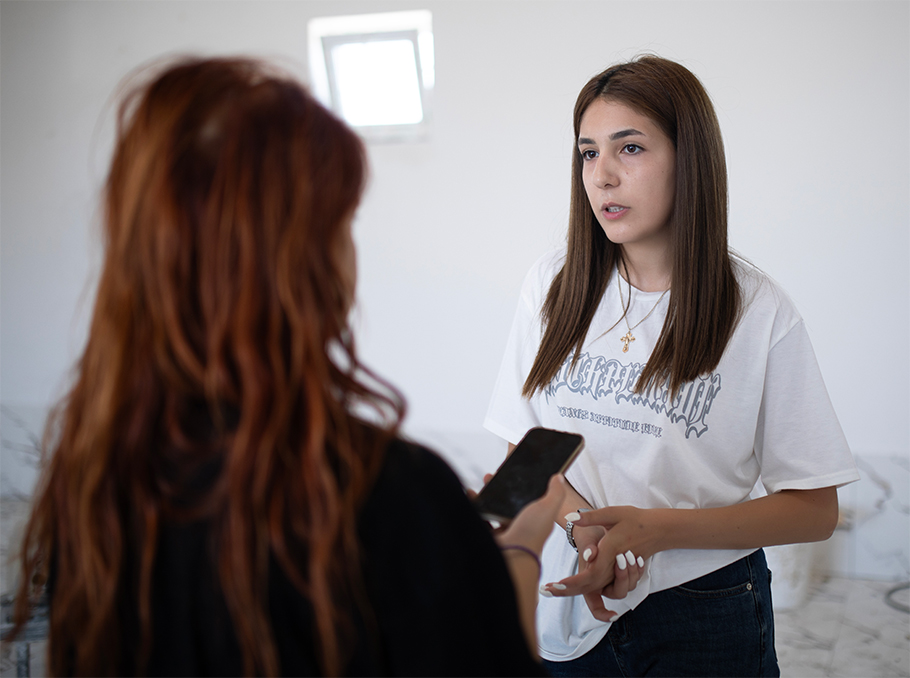
“My brother was seriously injured in the war and was going through a new phase of rehabilitation. We wanted to integrate him back into life. We were thinking, what activities should we engage in to make it easy for him. One day, while we were going to the neighboring village to buy bread, we realized that there is no bakery in our village and in the four nearby communities. We decided to start bread production – a useful service for both ourselves and others,” said Valya.
They received grants from various funds, bought equipment with their own money. In the process, they tried to find other possible opportunities, programs to expand their business. In July 2023, they learned about the grants announced by Central Shirak local action group and decided to apply. Now Valya is already a member of Central Shirak.
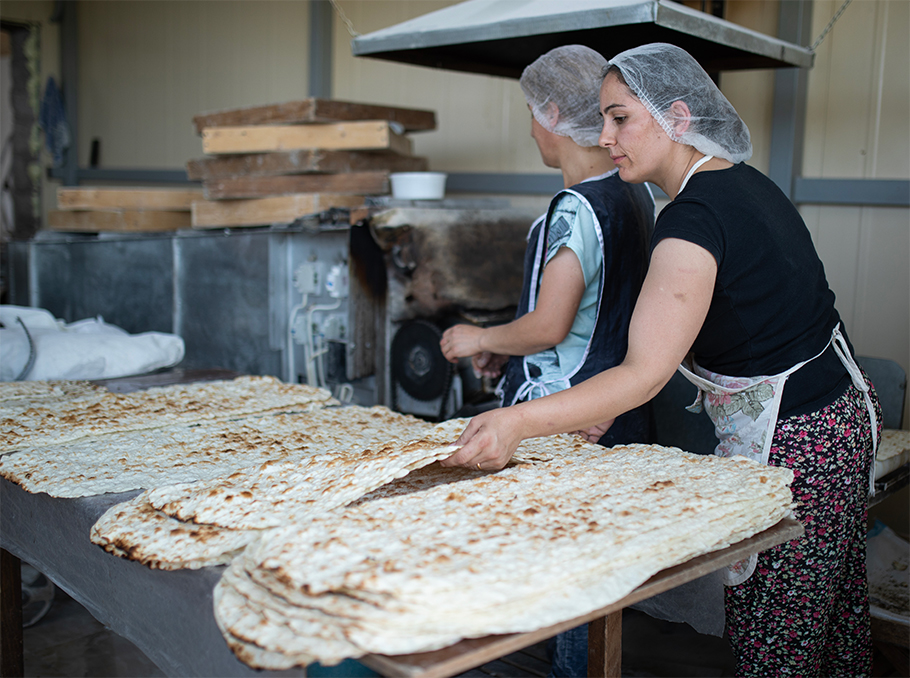
“At that time we had already started working. I registered and received a letter a month later informing us that we had advanced to the next stage. It seemed that the process would be challenging, but once we navigated the documentation and began working with the program mentors, everything became clearer. When I received the grant confirmation letter, I was with my friends and screamed with excitement and everyone looked at me in surprise.”
Every day the number of orders and customers from different communities is increasing. We even have customers from the central parts of the city, including Vanadzor,” said Valya.
She noted that customers are very satisfied with the quality of the bread, and they work hard to maintain these because their success is agreed with it.
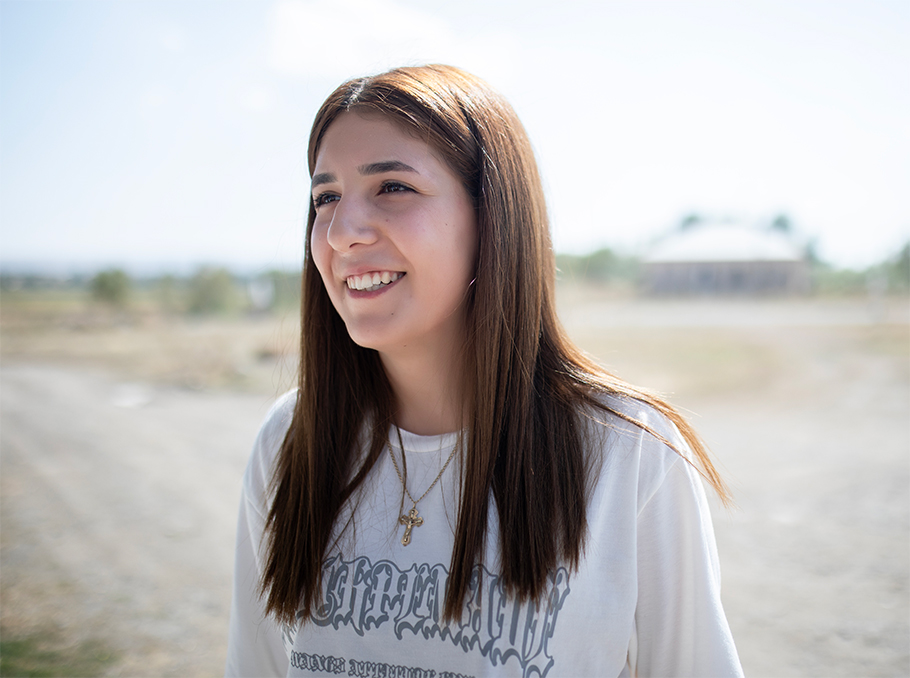
“We have been working for a year now, and are already enjoying the love of our customers. Our bakery is called Akhuriki Lavash, but we are not yet registered as a brand. We are trying to expand and make the business more prosperous, especially since we started it for my brother. He now handles technical issues, such as equipment repair, raw material supply, and occasionally sales. Our customers every time remind us: ‘Bread is a sacred work, you are doing a wonderful job.’ Their appreciation keeps our family motivated and enthusiastic,” said Valya.
In addition to family members, the workshop employs seven more workers. Three more jobs will be opened, as they plan to expand their product and need specialists to bake them.
The article was produced with the support of European Union and Austrian Development Cooperation. The content of this article is the sole responsibility of Lead4Shirak project and does not necessarily represent the views of the European Union and Austrian Development Cooperation.
Anahit Amirkhanyan
Photos: Emin Aristakesyan









